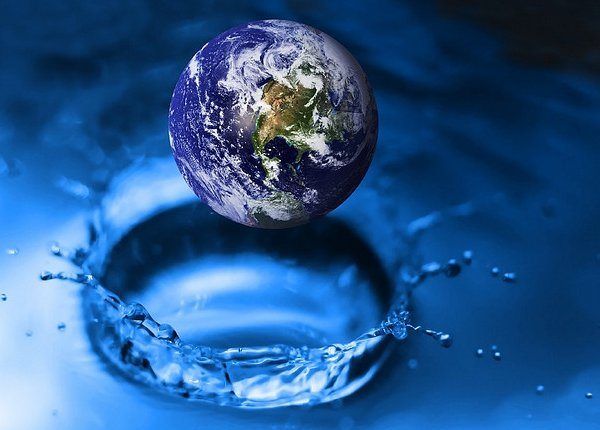Water is considered one of the most essential commodities that man has exploited so far than any other resources for the existence of his life. Water availability on earth is reducing day by day. It is crucial for all aspects of life. Water is the defining feature of our planet. The Earth’s surface is clearly dominated by water: As reported, 70.8% of it (361.2 million km²) is covered by the oceans, about 3.16% (more than 16.1 million km²) by ice on land. Lakes cover approx. 2 million km² (0.39%). Including rivers and wetlands, with approx. 2.7 million km² (0.53%), the total water-covered surface of our planet is above 75 %. Though 75% of our planet is covered with water the quality of utilizable water is limited to the earth. Ninety-seven and a half percent of all water are found in the oceans of the remaining fresh water (2.5%) only one percent is accessible for extraction and utilizable for a suitable use for mankind. Water availability on earth is reducing day by day.
Unique properties that water makes a “Unique Engineering Material”:
1. The only substance that exists in the earth crust in three forms- solid, liquid as well as gaseous form.
2. The only substance that expands on freezing; highest density at 4 deg C. Due to this properties the existence of aquatic life, water availability even in cold winter season is possible in hill places and other colder region of our planet earth.
3. Water has got the highest Specific Heat(1 deg C) indicating it’s highest heat exchange capacity it has been used for power generation in Boiler systems of a Thermal Power Plant and also used as a coolant in a cooling water system.
At the beginning of the 21st century, due to the unprecedented growth of population with rapid urbanization as well as industrialization the entire world specifically developing countries like India are suffering from the clean and safe water supply. Further, environmental issues like Global Warming and Climate change is likely to reduce water tables and disrupt water supplies in many areas, making water even more costly and energy intensive to obtain in the future. According to UNEP report globally, two million tons of sewage, industrial and agricultural waste is discharged into the world’s waterways and at least 1.8 million children under five years-old die every year from water-related disease, or one every 20 seconds. Over half of the world’s hospitals beds are occupied with people suffering from illnesses linked with contaminated water and more people die as a result of polluted water than are killed by all forms of violence including wars. By 2025, 800 million people will experience freshwater scarcity, and two-thirds of the world population could be under stress conditions. 1.1 billion people have no access to any type of drinking water source.
Recent World bank Report: India’s Water Economy, Bracing for a Turbulent Future. Unless water management practices are changed – and changed soon – India will face a severe water crisis within the next two decades and will have neither the cash to build new infrastructure nor the water needed by its growing economy and rising population. It is expected that by around 2020, India will be a ‘water stressed’ state with per capita availability declining to 1600 cu m/person/year. A country is said to be water stressed when the per capita availability of water drops below 1700 cu. m/person/year.
In fact, water and wastewater treatment and it’s management have a direct impact on the biological diversity of aquatic ecosystems, disrupting the fundamental integrity of our life support systems, on which a wide range of sectors from urban development to food production and industry depend. It is essential that water and wastewater management are considered as part of integrated, ecosystem-based management that operates across sectors and borders, freshwater and marine systems on a sustainable basis.
By Dr. Ashim Kumar Bhattacharya; Principal Advisor & Trainer-Water and Effluent Treatment; Energy Plus India

